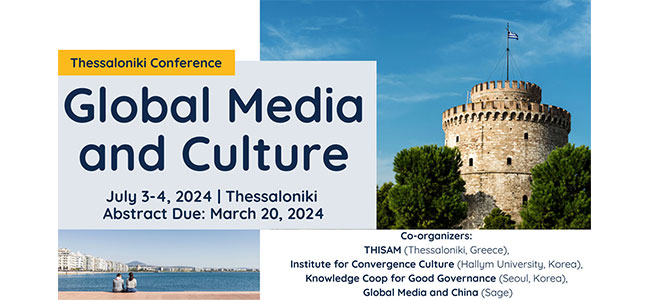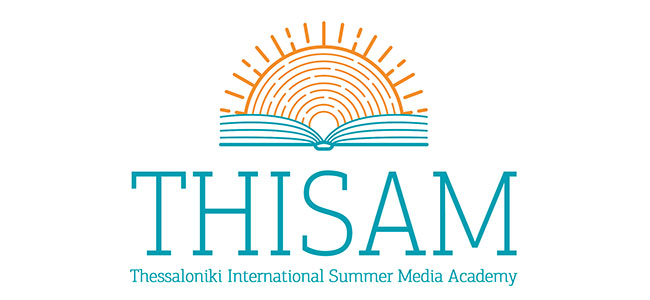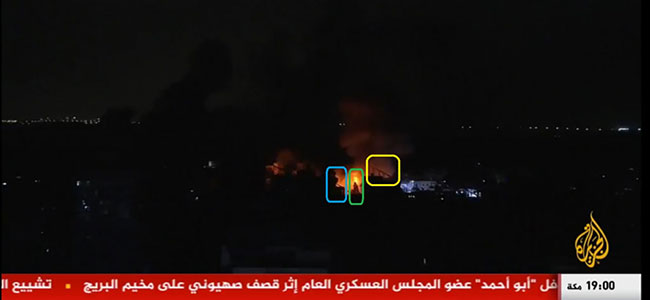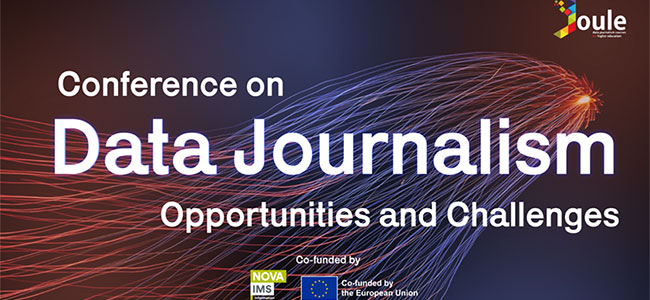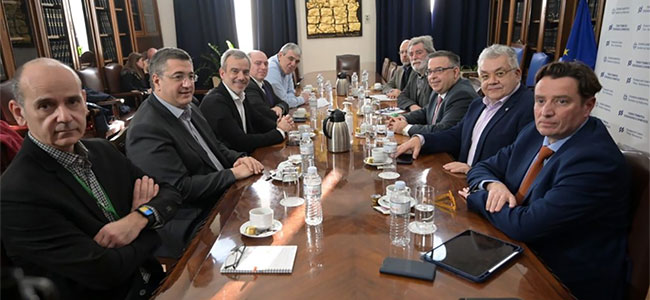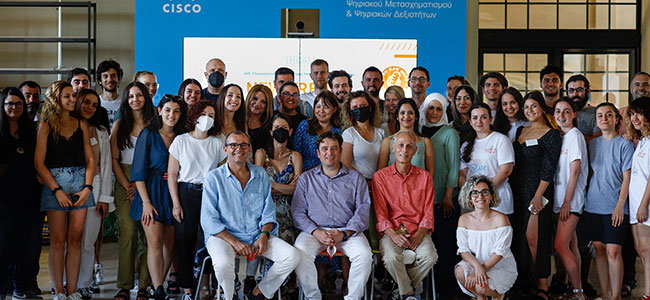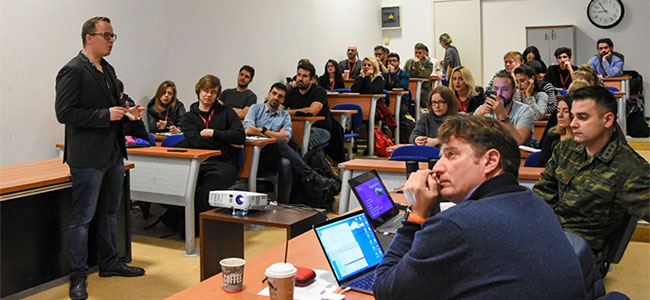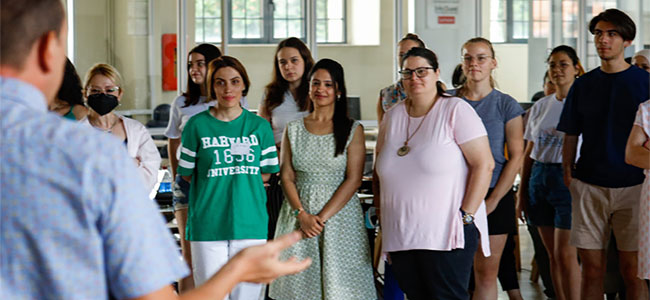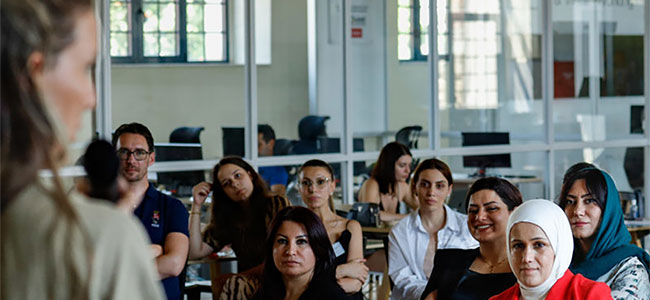Conference theme: The currents of global media and culture
Date: July 3-4, 2024, 1:00-6:00PM
Venue: Thessaloniki, Greece
Co-organizers: THISAM (Peace Journalism Lab, School of Journalism and Mass Communications, Aristotle University of Thessaloniki, Greece), Institute for Convergence Culture (Hallym University, Korea), Knowledge Coop for Good Governance (Seoul, Korea) and Global Media and China (Sage)
News
Step into the future of media and communication in this immersive summer school. Explore the challenges and discover the cutting-edge tools shaping tomorrow's landscape of information dissemination. Through engaging discussions, workshops, and hands-on sessions, gain invaluable insights into the challenges and opportunities presented by these disruptions. Equip yourself with the knowledge and tools to thrive amidst this transformative era of communication.
The recent conflict in Gaza has proven once again that social media are a real battleground. In this battleground, conflicts are fought hand in hand with the physical ones. All combatants want to prevail in the virtual domain as this will give them superiority in the struggle to achieve cognitive effects.
The last few years the definition of “immersive journalism” has been popular and widely used in journalism studies and journalism circles. According to Nonny de la Peña “immersive journalism is the production of news in a form which people can gain first-person experiences of the events or situation described in news stories” (de la Peña et al. 2010 at Pérez-Montoro, 2018:69-73).
The digital era’s media ecosystem is defined by the proliferation of disinformation, misinformation and fake news, both to Digital Immigrants and Digital Natives. Following Prensky’s (2001a) approach we define Digital Immigrants as the individuals who were born prior to internet services becoming ubiquitous. Due to the undeniable existence of echo-chambers, filter bubbles and algorithms in social media platforms, users rarely have the opportunity to come into contact with ideologies different from their existing ones (Shinde & Sathyaprakash, 2023). That’s why it is essential to agree that media literacy can help them filtering the news they receive and recognizing any type of the so called Information Disorder (Wardle & Derakhshan, 2017).
JOULE – Data Journalism for Higher Education – is a European project that aims to design, develop, and test a joint blended curriculum in Data Journalism benefiting from the partnership from different countries, disciplines and economic sectors, whether public or private. JOULE is a joint research project that counts on a consortium of 7 partners from 5 different EU countries (Italy, Portugal, Spain, Greece, and Belgium).
The Peace Journalism Lab of the Aristotle University of Thessaloniki participates in the Pan-European program “JOULE: the Data Journalism courses for Higher Education” with the aim of creating joint data journalism courses with universities abroad to develop students’ skills. The partners are University of Tuscia, Universidad Nova de Lisboa, Dataninja, Evodevo, Aristoteleio Panepistimio Thessalonikis, Universidad de Alcalá and UC Limburg.
The founding members of the Thessaloniki-based International Training Centre for the Safety of Journalists and Media Professionals agreed on the signing of a Memorandum of Cooperation for the establishment of the Centre at a meeting held on January 20th, 2023, at the Government House. The eight institutions that participated in the meeting and will be the cooperating parties are the General Secretariat for Communication and Information, the Region of Central Macedonia, the Municipality of Thessaloniki, the Aristotle University of Thessaloniki (AUTH), the Union of Daily Newspaper Editors of Macedonia and Thrace (ESIEMTH), the Athens News Agency – Macedonian Press Agency (ANA-MPA), the Hellenic Radio and Television (E. R.T.) and the Municipal Enterprise for Information, Theatre and Communication (DEPTHE).
The 6th International Media Summer Academy (THISAM) took place in Thessaloniki from the 15th until the 22th of June and it was organized by the School of Journalism and Mass Communications of Aristotle University Thessaloniki (AUTh), Jean Monnet of European Union Public Diplomacy, and other partners. This year THISAM brought together 53 participants from 12 different countries.
War correspondents today face a significant number of unprecedented challenges. They find it difficult to satisfy even basic needs, including their personal security, while at the same time they face an extremely complex information environment. In addition, the unexpected development of the Russian invasion of Ukraine brought the war correspondent profession once again into the spotlight.
The 6th International Media Summer Academy (THISAM) has already reached its sixth day. During the previous days, participants took part in workshops and lectures held by distinguished speakers.
The three first days of the 6th International Media Summer Academy (THISAM) are just over. Organized by the School of Journalism and Mass Communications of Aristotle University Thessaloniki (AUTh), Jean Monet of European Union Public Diplomacy, and other partners, each year THISAM brings together an impressive group of people passionate about journalism. Attendees include early-career journalists, students, media entrepreneurs, scholars, leaders of NGOs, and media industry leaders.




